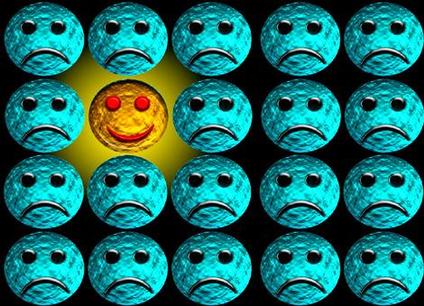This has thankfully begun to change.
These powerful concepts provided the developing discipline of psychotherapy a new way to think - based in growth and hope. As science took over, these human notions were ultimately rejected by mainstream psychology, until recently re-examined.
Positive psychology, “the scientific study of positive experiences and positive individual traits,” (Duckwork, Steen, Seligman, 2005, p. 629) is experiencing an increase in awareness and popularity in the Western psychotherapy and psychological sphere. Tracing it's roots back to the Humanist movement, and taking its defining characteristics from opposition to the medical model that current clinical psychology and psychiatry grew from, positive psychology offers a significant change to the ways therapy is practiced.
There is a significant power in this change for ordinary people, as it recognises that you don't have to be suffering from a deep clinical mental illness to be able to seek counselling. It means that for the person who is generally healthy but feels a bit off kilter, or who has been dealt a bad hand, then counselling is a very real and worthwhile option. For the person who wants to search out strengths to build on or has roadblocks to overcome, an avenue of specialised and tailored therapy is now available.
That positive psychology has proven effective is of great value, as it not only provides useful tools for practitioners, but also helps establish a path for future research and growth into optimal human functioning. As Seligman states “If psychologists wish to improve the human condition, it is not enough to help those who suffer. The majority of “normal” people also need examples and advice to reach a richer and more fulfilling existence.” (Seligman, Csikszentmihalyi, 2000, p. 5)
Such simple interventions as finding that a high level of practice and repetition of a task can lead to a positive ongoing change enables practitioners to “encourage their clients to regularly practice and keep a record of positive strategies” (Sin & Lyubomirsky, 2009, p. 483) so that they ultimately become habit is incredible useful. They further found “overwhelming evidence” (Sin & Lyubomirsky, 2009, p. 479) that positive psychological interventions “effectively boost well-being and ameliorate depression.” (Sin & Lyubomirsky, 2009, p. 479). This is of significance, as rather than these results suggesting the status quo of therapy – the focus on depression – they suggest that therapy should concentrate on expanding, recognising, and teaching happiness, as it works. This turns institutionalised models on their head, and opens the way for counselling and coaching to operate as an effective part of psychotherapy, taking the client beyond relief from pain, and further enables coaching for a large population that wishes to determine and increase their strengths.
The Positive psychology re-invigoration of the early Humanist psychology movement stands aside from the traditional medical model. It maintains scientific rigour, and as such has commenced to form a mortar between the bricks of counselling, psychotherapy, psychology, and psychiatry. It often takes the guise of coaching within counselling, which can be seen as a direct result, the method, of positive psychology. Through adherence to testing standards and requirements, through a fresh lens devoid of the filters of previous institutionalised variants of psychology, the positive psychology movement has elevated counselling, humanised psychology, and relegated psychiatry to its narrow medicalised form while at the same time combining all three in a continuum of human growth potential.
How have you experienced therapy? How useful for you is the focus on your positive humanity?
References:
- Duckworth, A., Steen, T. Seligman, M. (2005) Positive Psychology in Clinical Practice. Annual Review Clinical Psychology. Annual Reviews.
- Lyubomirsky, S. King, L. and Diener, E (2005). The Benefits of Frequent Positive Affect: Does Happiness Lead to Success? Psychological Bulletin Volume 131, No. 6. The American Psychological Association.
- Maslow, A.H. (1954). Motivation and Personality. Harper, New York.
- Rogers, C.R. (1959) Client-Centered Therapy. In American Handbook of Psychiatry, Vol. 3. Ed. Silvano Arieti. Basic Books, New York.
- Seligman, M., Csikszentmihalyi, M (2000). Positive Psychology: An Introduction. American Psychologist, Volume 55, No. 1.
- Sin, N., Lyubomirsky, S. (2009) Enhancing Well-Being and Alleviating Depressive Symptoms with Positive Psychological Interventions: A Practice-Friendly Meta-Analysis. Journal of Clinical Psychology: In Session, Volume 65(5)


 RSS Feed
RSS Feed